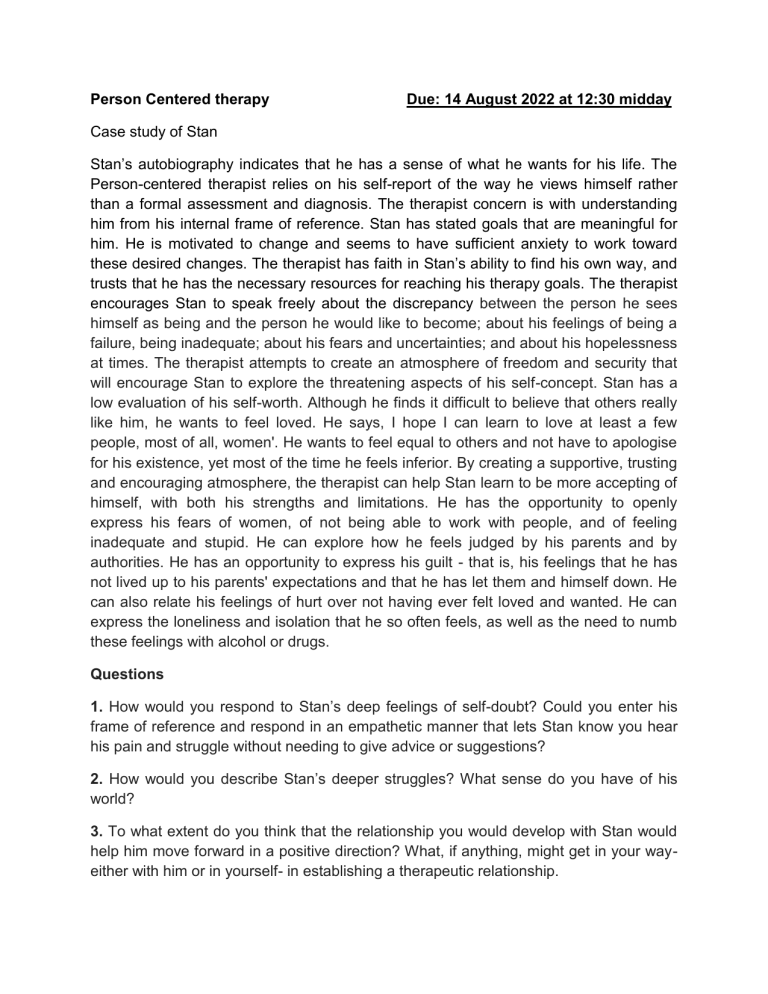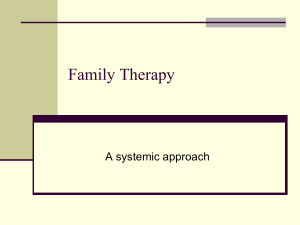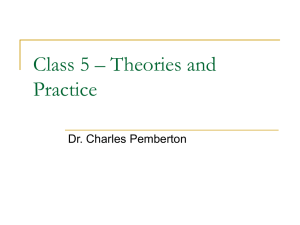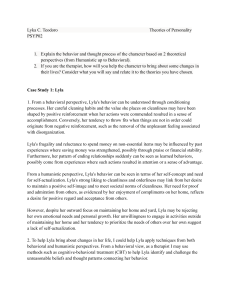
Person Centered therapy Due: 14 August 2022 at 12:30 midday Case study of Stan Stan’s autobiography indicates that he has a sense of what he wants for his life. The Person-centered therapist relies on his self-report of the way he views himself rather than a formal assessment and diagnosis. The therapist concern is with understanding him from his internal frame of reference. Stan has stated goals that are meaningful for him. He is motivated to change and seems to have sufficient anxiety to work toward these desired changes. The therapist has faith in Stan’s ability to find his own way, and trusts that he has the necessary resources for reaching his therapy goals. The therapist encourages Stan to speak freely about the discrepancy between the person he sees himself as being and the person he would like to become; about his feelings of being a failure, being inadequate; about his fears and uncertainties; and about his hopelessness at times. The therapist attempts to create an atmosphere of freedom and security that will encourage Stan to explore the threatening aspects of his self-concept. Stan has a low evaluation of his self-worth. Although he finds it difficult to believe that others really like him, he wants to feel loved. He says, I hope I can learn to love at least a few people, most of all, women'. He wants to feel equal to others and not have to apologise for his existence, yet most of the time he feels inferior. By creating a supportive, trusting and encouraging atmosphere, the therapist can help Stan learn to be more accepting of himself, with both his strengths and limitations. He has the opportunity to openly express his fears of women, of not being able to work with people, and of feeling inadequate and stupid. He can explore how he feels judged by his parents and by authorities. He has an opportunity to express his guilt - that is, his feelings that he has not lived up to his parents' expectations and that he has let them and himself down. He can also relate his feelings of hurt over not having ever felt loved and wanted. He can express the loneliness and isolation that he so often feels, as well as the need to numb these feelings with alcohol or drugs. Questions 1. How would you respond to Stan’s deep feelings of self-doubt? Could you enter his frame of reference and respond in an empathetic manner that lets Stan know you hear his pain and struggle without needing to give advice or suggestions? 2. How would you describe Stan’s deeper struggles? What sense do you have of his world? 3. To what extent do you think that the relationship you would develop with Stan would help him move forward in a positive direction? What, if anything, might get in your wayeither with him or in yourself- in establishing a therapeutic relationship. NB: Please check the text book for other case studies, you will definitely be asked one of them in the test and exam.





